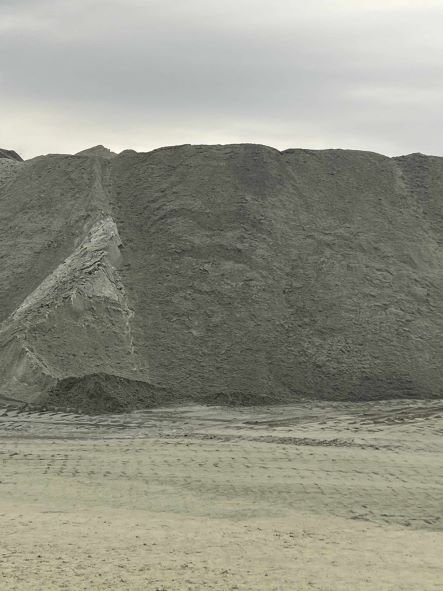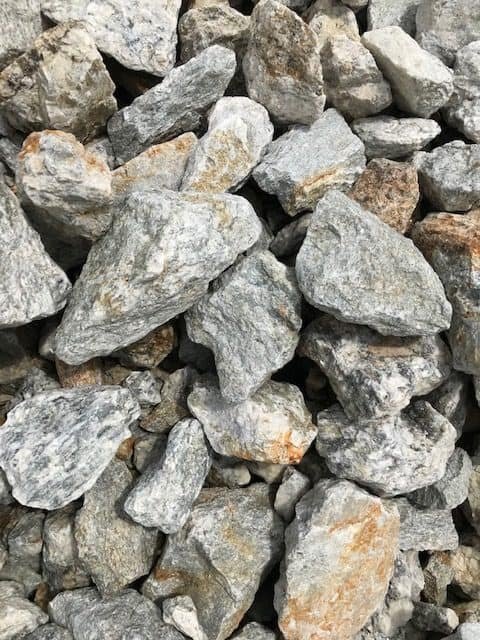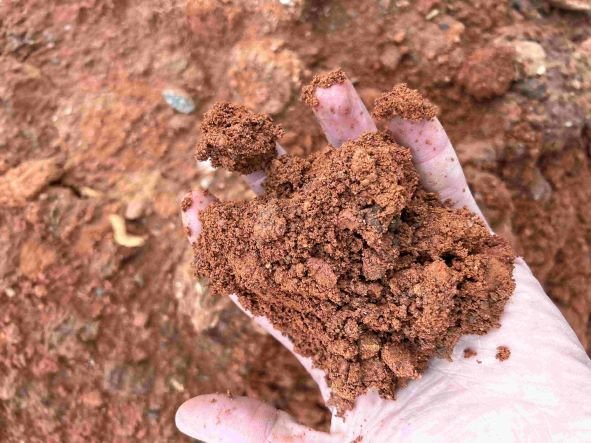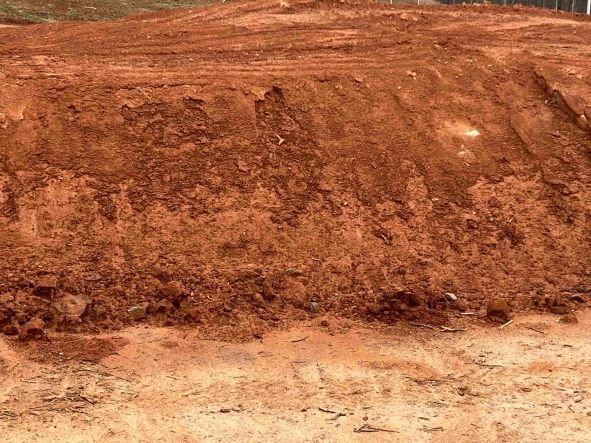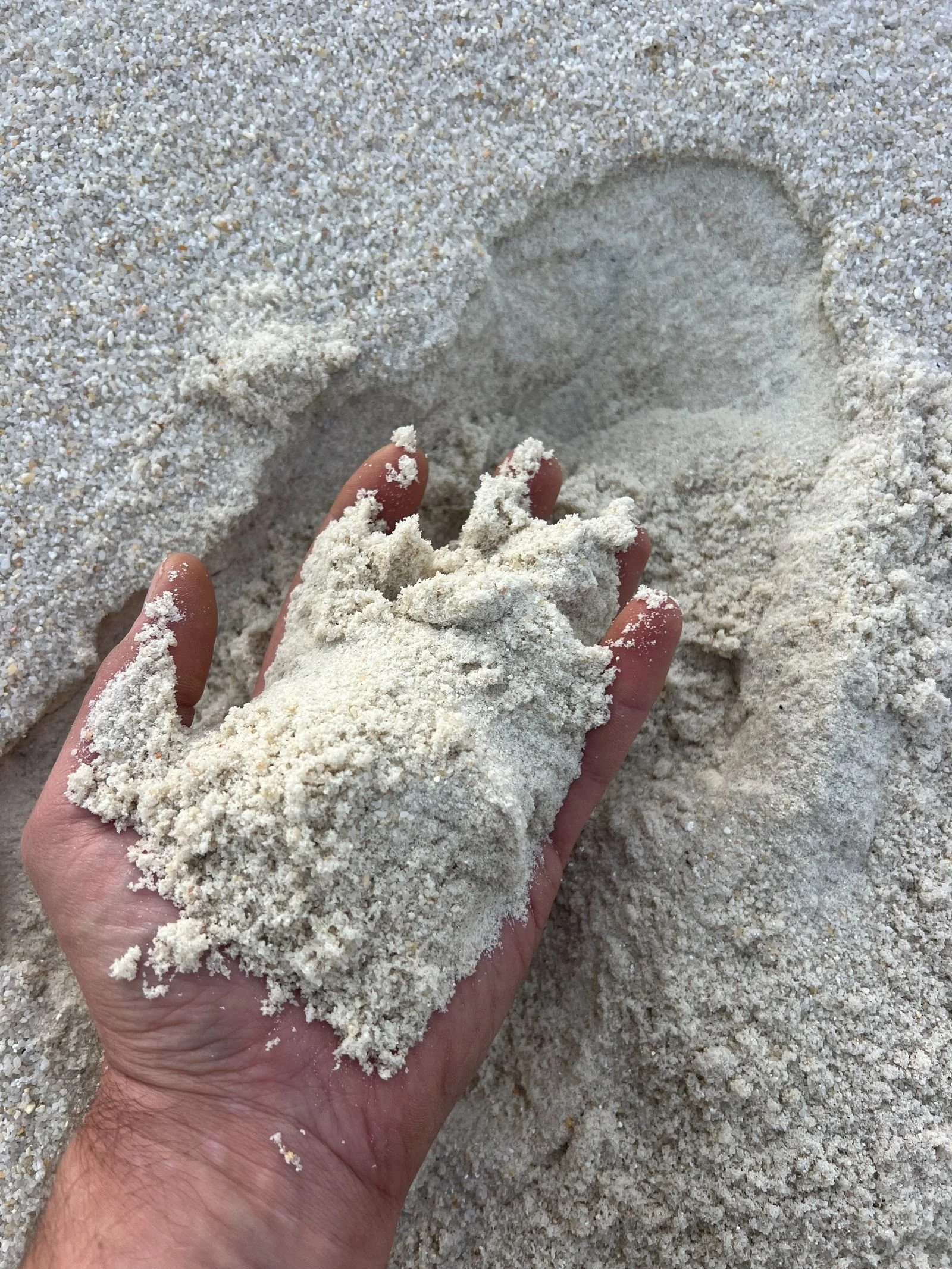How Much Surge Stone (2–4″) Do I Need?
Assumes Surge Stone ≈ 17.5 ft³ per ton. For 2–4″ stone, plan a minimum 4″ layer. Coverage varies with placement.
Depth under 4″ was adjusted to 4″ (minimum practical layer for 2–4″ stone).
Sales tax (varies by county) is added at checkout.
About Surge Stone (2″–4″ Construction Aggregate)
Surge Stone is a large crushed granite aggregate measuring 2″–4″ in size. Produced at quarries across Upstate South Carolina, it is angular, durable, and non-compacting.
It is widely used as a stabilization and erosion control material across Spartanburg, Greenville, and Cherokee counties. Because it does not compact, Surge Stone is placed as a bridging stone over clay soils, as a base under rip rap, or in SCDOT-approved construction entrances.
Surge Stone is not recommended for driveways or walkways. For those applications, Crusher Run or #57 Stone are better suited.
Local Applications in Upstate SC
Construction Entrances: Meets SCDOT standards for tracking pads.
Drainage Swales: Installed in roadside ditches to control washouts.
Slope Stabilization: Anchors embankments and banks common in Greenville & Spartanburg.
Undercut Stabilization: Bridges soft Piedmont clays before finer aggregates are placed.
Heavy Equipment Pads: Provides stable ground for cranes, loaders, and dump trucks.
Erosion Control: Used at culvert inlets/outlets and stormwater outfalls.
Coverage and Density
Average Density: ~22 cubic feet per ton
Coverage: ~35 sq ft per ton at 6″ depth
Coverage: ~25 sq ft per ton at 8″ depth
Note: Coverage varies with slope, gradation, and placement.
Comparison to Other Materials
Crusher Run: Compacts into a dense base. Better for driveways and pads.
Rip Rap: Larger 5–10″ armor stone for ditches, culverts, and shorelines.
#57 Stone: Smaller clean stone for drainage systems, septic fields, and driveways.
FAQ – Surge Stone (Upstate South Carolina)
What is Surge Stone used for in Spartanburg and Greenville counties?
Primarily for stabilization, drainage, and erosion control at job sites, construction entrances, and slopes.
Does Surge Stone compact?
No. It is free-draining and non-compacting. For compactable base, use Crusher Run.
How much area does a ton cover in Upstate SC?
~35 sq ft at 6″ depth or ~25 sq ft at 8″ depth, depending on placement.
Can Surge Stone be used for residential driveways in Spartanburg?
Not recommended. Use #57 Stone for drainage or Crusher Run for compaction.
How does Surge Stone compare to Rip Rap locally?
Rip Rap (5–10″) is used for heavy erosion control. Surge Stone (2–4″) is a mid-size option often placed underneath Rip Rap.
Is Surge Stone available year-round at Upstate quarries?
Yes. It is a standard stock item at Spartanburg and Greenville quarries.
Do I need geotextile fabric under Surge Stone in clay soils?
Yes. In Piedmont clay common to Upstate SC, fabric prevents mixing and improves longevity.
How heavy is a tri-axle load in South Carolina?
About 20–22 tons, depending on state DOT weight limits.
Is Surge Stone available in recycled form locally?
Yes. Recycled Surge Stone made from crushed concrete/asphalt is available as a sustainable alternative.
Can Surge Stone be used in French drains?
No. It is too large. French drains typically use #57 Stone or River Sand.
Can Surge Stone be used for septic drain fields in Spartanburg County?
No. Septic fields require Washed River Sand or #57 Stone.
Is Surge Stone the same as #4 Stone?
No. #4 Stone is 1–2.5″. Surge Stone is 2–4″.
Can Surge Stone be tailgate spread on-site?
Yes, but even distribution is harder due to the large rock size.
How does Surge Stone perform in slope stabilization projects?
It provides weight and interlock on steep grades. Often paired with Rip Rap for long-term protection.
What areas do you deliver to?
We deliver Surge Stone across Spartanburg, Greenville, Cherokee, Union, and Laurens counties.
Disclaimer
Natural products vary in size and color. Quantities are approximate. See Disclaimer & Terms of Delivery for full details.




